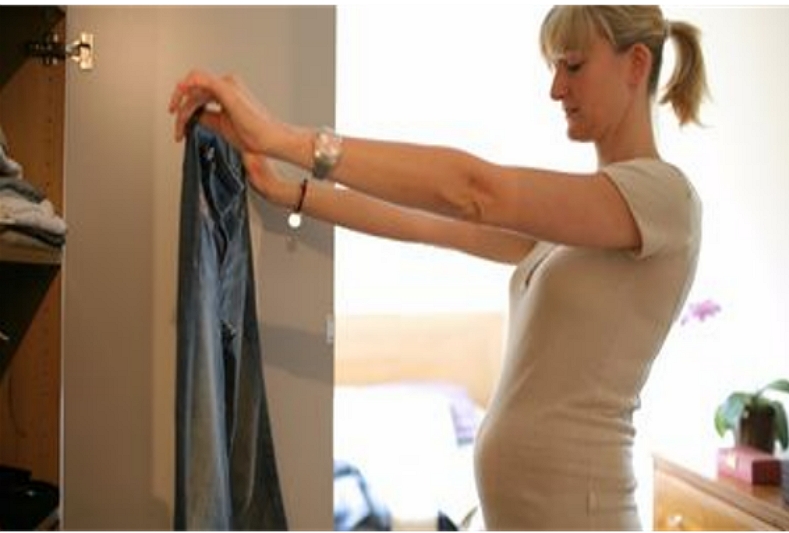Read on to find out when these are by reading our blog post on when do you start needing maternity clothes?
Maternity clothes are often considered when the mother is around six to seven months pregnant. This is when many women start to show their pregnancy more, which might make them feel self-conscious about how they look in regular clothing.

It can also be when a woman starts feeling uncomfortable with her regular clothing because of the size of her belly and breasts. However, this isn’t when you need maternity clothes! There are many other signs that it’s time for maternity wear!
Who should I tell about my pregnancy?
When you are pregnant it is important that your family, friends, work colleagues or social group know so they can support you through this exciting time! There’s no right or wrong way to announce your news – it could be as simple as saying “we’re expecting a baby in ____ months/years” OR if you want to be creative then go wild with cakes, balloons & other fun stuff. Also, don’t forget to share the news on Social Media using hashtags like #babynovelty for example!
Do you pay tax on Kit days?
You can get paid for these days as well as it is deducted from your pay if you are on maternity leave, so they will be taxed within that.
Who pays for keeping in touch days?
These are paid by the company you work for, not the NHS.
Are Kit days mandatory?
No, they are not mandatory. They can be negotiated and agreed upon between you and your employer if the business is willing to pay for them or allow time out of work to spend with their new baby during this early stage.
Do I get paid maternity leave?
You would need a contract that states otherwise but it’s unlikely unless you have been working there for many years. You should ask someone on HR about this as it may vary from company to company depending on how long the business has been established etc.
If you do get paternity leave after your child is born, these days will come off any annual leave that you have accrued at that point though so think wisely!
What does “Kit days” mean?
Kit days are the number of days you have off when your child is born. If a midwife or doctor says that you should stay in hospital after giving birth, you will be allowed Kit Days so long as there is no other reason why they can’t come home with you straight away.
It does vary between hospitals but generally, it means time taken off work and paid up until their first birthday (if this occurs at all). You don’t get maternity leave on these days though!
Don’t I need to inform my employer before having children?
You should always speak with your boss about what happens if/when you decide to start a family early on even if not necessary because plans could change very quickly.
Can I earn money while on maternity leave?
This varies again depending on the employer and their maternity leave policy.
You can get up to 39 weeks of Statutory Maternity Pay (SMP) from your company if you qualify for it, or 90% of your average weekly earnings if they are lower than that amount. There is also a potential option to take Shared Parental Leave instead but this needs some discussion beforehand with your boss!
What happens once I’m back at work?
Once back in work after having children there will be no real difference unless you continue working part-time and choose not to go full time just yet – more flexibility all around essentially meaningless stress about what hours/days suit best for both parents. However, returning to work will mean that you are no longer eligible to claim SMP.
What needs to be taken into consideration?
There is an option for both parents to take Shared Parental Leave (SPL) which means they can share the time off after having a child and decide how this works between them. For SPL to happen, everyone must have been continuously employed with their company from before the birth of their baby – thus meaning there might be some job security depending on what stage you’re at in your career!
This also has its downfalls as it doesn’t offer any financial support during those weeks so would need to look into it further if needed. Additionally, maternity leave ends when paternity leave starts unless stated differently by your employer or agreed upon between you and your partner.
Can I get a second job while on maternity leave?
For SPL to happen, everyone must have been continuously employed with their company from before the birth of their baby – thus meaning there might be some job security depending on what stage you’re at in your career! This also has its downfalls as it doesn’t offer any financial support during those weeks so would need to look into it further if needed. Additionally, maternity leave ends when paternity leave starts unless stated differently by your employer or agreed upon between you and your partner.
